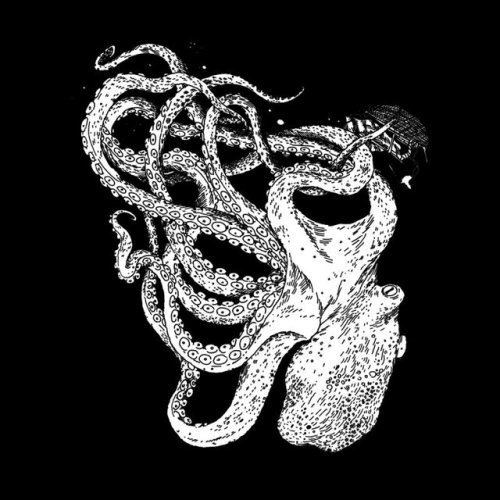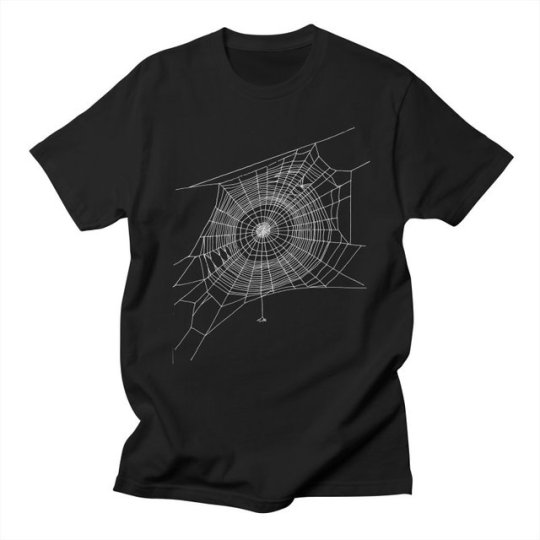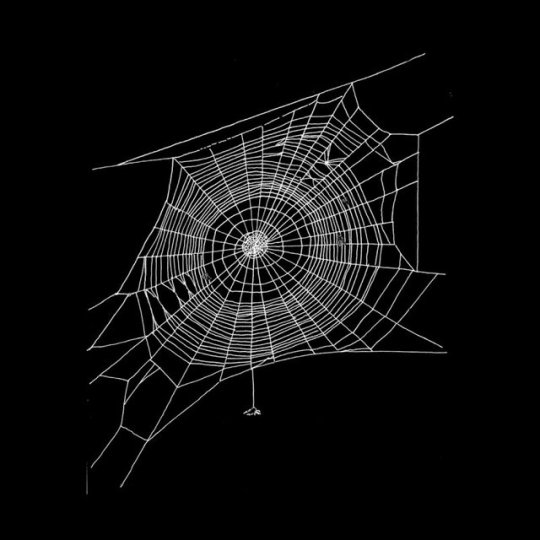Archive for October 20, 2017
“Suburra: Blood on Rome” thoughts, Season One, Episode Nine: “Pitch Black”
October 20, 2017“Pitch Black,” the penultimate episode of the show’s first season, cements my already firm belief that this is the best crime show Netflix has done by a mile. When you see the kinds of emotional climaxes Suburra can deliver for its main characters despite the fact that nearly all of them are likeable, even lovable, you have to wonder if it’s working so well because nearly all of them are likeable, even lovable, and not despite it at all.
This runs counter to the approach of nearly every post–Breaking Bad crime thriller on television. The best ones, like Breaking Bad itself, work hard to make their characters empathetic on some level, but they want you to think “christ, what a fucking bastard” as often as possible. The mediocre-to-shitty ones don’t have the depth to do empathy, so you wind up with a lot of miserable assholes grimacing all the time between horrible murders. Aureliano, Spadino, and Lele have all done their fair share of frowning and yelling and crying, but any single one of them has visibly enjoyed themselves on screen — not sociopathically, at the expense of others, but simply delighting in one another’s company — more than the equivalent players on every other Netflix crime saga combined. That gives Suburra a leg up on even its relatively solid sister series, like Ozark or Narcos or even Daredevil. These people have a lust for life, dammit, which gives their life and death struggles an irresistible magnetic charge.
I reviewed episode nine of Suburra: Blood on Rome for Decider. I’m telling you folks, whatever other Netflix show you’re watching, you’ll have a better time watching this one, I promise.
“Mindhunter” thoughts, Season One, Episode Six
October 20, 2017But once again, Mindhunter refrains from the mistake it made in its earliest episodes, where Tench and Ford’s boss was a mouthpiece for outdated and ignorant views—a convenient obstacle to be overcome by the real visionaires. It’s true that the D.A. doesn’t quite grasp the complex interplay of impulses and triggers that shaped Benjy, Frank, and Rose’s respective involvement in the murder and its aftermath. But it’s not that he can’t understand it, or doesn’t want to understand it. Wendy, Holden, and Bill simply haven’t figured out how to express it in a way that will get a guilty verdict out of a jury. When Wendy asks him “How do we translate this so you can use it?”, it’s neither a rhetorical question nor a passive-aggressive dig—she really wants to find a way to make their findings useful outside the laboratory conditions of their office.
And when the D.A. approaches them after allowing Frank to cop a plea, he’s sincere when he tells them why his hands were tied. It’s a utilitarian numbers game—“the lowest cost for the highest quality justice”—and he couldn’t take the risk of confusing a jury and letting justice of any kind slip away. Even when Holden and Bill grumpily reject his offer to take them out for dinner by way of an apology, they still shake his hand when he offers it. There are no hard feelings. How can there be? “What difference does any of this make if we can’t communicate it to the people who matter?” Holden asks Bill before they drive away. “I don’t know,” Bill sighs. Their own uncertainty about the trail they’re blazing makes them more forgiving when others demur from following.
I reviewed episode six of Mindhunter for the A.V. Club. Solid and thoughtful.
“Mindhunter” thoughts, Season One, Episode Five
October 20, 2017The late great Halt And Catch Fire famously took a while to actually become great. It got there because its writers figured out a new way to create personal and professional dilemmas for its characters. Rather than present black-and-white choices in which someone was clearly in the right and someone else in the wrong, or follow the shades-of-gray antihero-drama approach where the interest lies in studying why people do the wrong thing to begin with, Halt took a third route: It constructed scenarios in which the protagonists faced two equally compelling options and had to choose between them with no clear-cut right answer at all. For example, should they gut the creative innards of their new computer, lowering the price tag and guaranteeing competitiveness in the marketplace at the expense of what made the product special? Or should they keep their innovative interface intact and take a shot at something great, risking not just their livelihoods but those of everyone who worked for them in the process? Each path had its partisans, each argument was persuasive, and in the end they had no more idea of what would be best than any of us do when we face turning points in our own real lives. The show’s total lack of hand-holding for either its characters or its audience made for riveting viewing.
I thought about this a lot while watching this episode of Mindhunter. Focused almost exclusively on the murder and mutilation case that Bill Tench, Holden Ford, and local cop Mark Ocasek started working in the previous installment, it’s the story of three investigators hashing things out as they go, testing competing theories of the crime with no slam dunks in sight. It’s not about winnowing out false leads until the one true answer is found—even though they make an arrest by the end of the hour, the exact circumstances of the killing remain a mystery. Rather, it’s about trying to figure things out in a field, and a world, where there are no sure things. It’s a very different way to write a procedural.
I reviewed episode five of Mindhunter for the A.V. Club. It’s become a much better show. There are still music-cue misfires and problems with Debbie galore, but it’s settled into a highly watchable groove, particularly if you’re a serial-killer buff and are interested in seeing how the conventional wisdom got hashed out conversation by conversation.
31 October T-Shirts by Julia Gfrörer, Day 19: Fig Branch
October 20, 201731 October T-Shirts by Julia Gfrörer, Day 18: Sea Monster
October 19, 2017“Suburra: Blood on Rome” thoughts, Season One, Episode Eight: “A New Man”
October 19, 2017Well, that was fast. As predicted, Suburra: Blood on Rome’s relatively placid seventh episode was just the calm before the storm. “A New Man,” its eighth installment, ends the breather by piling up the betrayals, revelations, and patricide so high that you practically need to blackmail the Vatican for a building permit. We’re getting close to the end now, and it shows.
I reviewed episode eight of Suburra: Blood on Rome for Decider. This show fuckin’ rules.
“Mindhunter” thoughts, Season One, Episode Four
October 19, 2017Twitter is a portal straight into hell, but every so often a li’l angel of insight manages to spread its wings and fly out of its maw. So I offer a sincere thank you to the twitter userwho put into words something I might not have been able to put my finger on otherwise: The more like a procedural Mindhunter becomes, the better it gets. Sure enough, the show’s fourth episode spends nearly all of its time watching Holden Ford, Bill Tench, and their new partner Wendy Carr at work, and it’s the best episode yet.
I reviewed episode 4 of Mindhunter for the A.V. Club. It’s like VH1 Classic Albums, but about the concept of serial killers.
“Suburra: Blood on Rome” thoughts, Season One, Episode Seven: “Last Customer”
October 17, 2017Episode seven in fact marks a significant slowdown in the heretofore breakneck speed of the story. A calm before the storm? Perhaps. Whatever the case, it’s more about consolidating the status quo than shaking things up….That’s not to say that it’s boring. Come on, this is Suburra—it doesn’t do boring.
Not a ton to say about episode seven of Suburra: Blood on Rome, which I reviewed for Decider. But the review contains some gifs that’ll show you what I mean about how the show’s visual component makes it feel alive even in a breather of an episode like this one.
“Mindhunter” thoughts, Season One, Episode Three
October 17, 2017Kemper [is] back for another round of interviews so thick with gallows humor you can almost see the nooses. “Big Ed” had a sick sense of humor during his murders, one he can’t help but chuckle about to himself as he recounts the details to Bill and Holden—like how he shoved his mother’s severed vocal cords into the garbage disposal to shut her up permanently, or how he buried the decaptiated heads of his victims face up near her window, because “Mom always liked people to look up to her.”
These exchanges say a lot about both the killer and his questioners. Ed thinks he’s winning them over with his gruesome gags, but he’s really revealing the depths of his disregard for other people: The women he killed meant nothing more to him than becoming potential punchlines for sick jokes played at his hated mother’s expense. Bill and Holden, meanwhile, react with the reluctant but irrepressible exclamations you might hear from the crowd at comedy club where the stand-up said something particularly off-color—until they get to their car afterwards and simply stare at each other in disbelief. They’re good enough at their jobs to instinctively transform their shock and disgust into reactions that will keep them on Ed’s good side, so they can keep getting what they want from him in turn.
Bill spells all this out to Holden on the flight home, in one of the show’s best conversations yet about the nature of their job. “There’s nothing behind Kemper’s eyes,” he says. “It’s like standing near a black hole. And he thinks we’re his friends!” He pauses. “Well, he thinks you’re his friend.” Then he leans in to Holden for the conclusion: “Which makes you a pretty great FBI agent.” These guys are uniquely equipped to gaze into the abyss without its returning gaze getting the better of them, for now at least.
I reviewed episode three of Mindhunter for the A.V. Club. It’s improving for sure, but the conversations that don’t include serial killers still sound like they were written by aliens.
31 October T-Shirts, Day 17: Ghost of an Abandoned Child
October 17, 2017“Halt and Catch Fire” thoughts, Season Four, Episodes Nine and Ten: “Search” and “Ten of Swords”
October 16, 2017Halt and Catch Fire is one of the best shows ever made. Judging from the reaction to its two-part series finale this weekend, that’s uncontroversial now, which is an amazing thing to contemplate. From its rough start in Season One to its skin-of-the-teeth renewals for each subsequent year to its status as a critics’ darling that far too few people other than critics were talking about (and even critics let down the side a bit at the beginning of this season), it felt like the Little Engine That Almost Could. But there’s never been a show like it: generous of spirit toward its characters, yet always ruthless about their shortcomings and never sappy in its optimism that they might overcome them. Rooted in genuine moral dilemmas—not black and white choices, not even the shades of gray “I know it’s not the right thing but kinda I want to” stuff of the best antihero shows, but legitimately difficult choices between two strong options, neither of which is a sure thing. The sense that for all its focus on transformative technological advances and for all its temporal and geographical sweep (its four short seasons began in Texas 1981 and ended in California 1994), it all could have taken place in a single room between five characters. Co-creators Christopher Cantwell & Christopher C. Rogers and actors Kerry Bishé, Mackenzie Davis, Toby Huss, Scoot McNairy, and Lee Pace did what their characters could never quite do but never stopped dreaming of doing: They built something that will last.
[…]
I had another TV dream. They don’t happen frequently, but when they do they’re usually about a show that’s got me on the edge of my seat with anticipation for its next episode—a season finale, say, or the next installment in a particularly momentous stretch of the story. When they happen, my brain will conjure up an entire imaginary episode from the ether and play it for me, start to finish, as I “watch.” This has happened to me with shows I loved: The Sopranos, Mad Men, Battlestar Galactica, Lost. It’s happened with shows I didn’t love, too: True DetectiveSeason One was never one of my favorites, but I dreamed not one but two separate terrifying season finales in a single night, so it must have done something right.
But this one was unlike the others. It happened after I’d watched “Search” and “Ten of Swords,” the two-part series finale of Halt and Catch Fire. I went to bed late that night—early that morning, really—and dreamed I was at a cafeteria in midtown Manhattan. I was getting lunch with old friends, beloved coworkers from a job I had ten years ago, who were in town for a convention. Our awful old boss was there too, I guess because we couldn’t think of a way to get rid of him.
Suddenly I feel a tap on the shoulder and hear a cheerful greeting, I turn to my left and see Scoot McNairy and Lee Pace from Halt and Catch Fire sitting down to join me. It’s after the finale aired, and they’re all smiles. They just wanted to thank me for my writing about the show over the years. I turn to hug Scoot and congratulate him on the work they’d all done, then reach across him to shake Lee’s hand; the handshake gets weirdly botched and we joke about it as we try again. Turning to my coworkers (and studiously avoiding my old awful boss) I gesture to the two actors. “These are my friends,” I say.
Then I woke up.
I reviewed the series finale of Halt and Catch Fire, one of the best shows I’ve ever seen, for Decider. Writing about this show for the past four years has been one of the great pleasures of my career. I’m so grateful to everyone who made it possible.
Wet Nightmares: a conversation with the editors of erotic horror comics anthology ‘Mirror Mirror II’
October 16, 2017What are your thoughts around criticisms of erotic horror as a genre that sensationalizes and glorifies violence, or abstracts violence as an idea rather than damage done to real people?
J: In my life I’ve experienced and witnessed enough violence that I don’t consider my feelings about violence to be an abstraction. My experiences are my experiences. My responsibility to write something honest takes priority.
I think we we can be overzealous in condemning creators for making work about trauma – Sean and I are both abuse survivors, but we’re sometimes criticized for insensitivity towards sexual violence and doing harm to survivors in that way. And no doubt many of those critics are survivors too. It’s tiresome to have to produce a resume of trauma to prove you’re allowed to discuss it, and when you do you get it from the other side – from people who think you’re too close to the subject to handle it well. What I’m getting at is that there’s no correct way to deal with violence in art, and what harms one reader can be healing to another. I’d rather give artists the benefit of the doubt.
S: Julia pretty much says it all here. I’ll just add that it goes back to what I said earlier about different approaches within horror – similarly, there are different ways to address and convey the pain and suffering experienced by real people. Certainly my work as a writer and now as an editor is an attempt to do so, with my own pain just for starters. The great power of fantastic fiction of all kinds, perhaps horror most of all, is that it can give voice to everyday feelings, emotions, and experiences the magnitude of which is beyond the ability of everyday language to express.
My partner and co-editor Julia Gfrörer and I spoke to Minh Nguyen about our comics anthology Mirror Mirror II for AQNB. I’m ashamed of myself for not thinking of “Wet Nightmares” sooner.
“Suburra: Blood on Rome,” Season One, Episode Six: “Garlic, Oil, and Chili Pepper”
October 16, 2017You’re not watching Suburra to find out who comes out on top of this particular dirty deal; let’s face it, the show only gives you rooting interest in the young guns….Rather, you’re watching Suburra just to watch it — to see three incredibly handsome dudes try to pull one over on the world in a series of striking shot compositions across the length and breadth of the Eternal City.
“The Deuce” thoughts, Season One, Episode Six: “Why Me?”
October 16, 2017Last week, The Deuce staged a war of words that saw its combatants, Candy and Rodney, criss-cross their stretch of 42nd Street. This week’s episode (“Why Me?”) tries a different but equally effective tactic: From the big-picture meta-plot to the individual storylines, everything seems headed the same way all at once. It’s the first installment of David Simon and George Pelecanos’s period piece that doesn’t feel like bits and pieces stitched together, but a cohesive whole.
I reviewed this week’s episode of The Deuce, basically the first one I enjoyed, for Rolling Stone.
31 October T-Shirts by Julia Gfrörer, Day 16: Spider’s Web
October 16, 201731 October T-Shirts by Julia Gfrörer, Day 15: Common Blue Violets
October 16, 2017“Mindhunter” thoughts, Season One, Episode Two
October 15, 2017Edmund Kemper is not your average pop-culture serial killer. That’s the point. Mindhunter’s second episode may be dogged by many of the same problems as its premiere—we’ll get to that later—but its decision to cast “The Co-Ed Killer” at the Hannibal Lecter to restless FBI Agent Holden Ford’s Clarice Starling is as smart and sinister as the man himself. Played by actor Cameron Britton, whose performance is already one of the most chilling of its type, Kemper is the embodiment of Ford’s argument that this new breed of killer is too crazily complex for the existing rulebook to cover.
The “we’ll get to that later” is doing a lot of work in the above paragraph, but nevertheless I enjoyed the Ed Kemper material in episode two of Mindhunter, which I reviewed for the A.V. Club, a great deal. Just be prepared for my very different thoughts on the music cues and the female lead.
31 October T-Shirts by Julia Gfrörer, Day 14: Three Beggars
October 14, 2017“Mindhunter” thoughts, Season One, Episode One
October 14, 2017“It’s not like there’s some magical machine that makes identical copies of things.” To its eternal credit, Mad Men got the single worst line of dialogue in the entire series out of the way in its pilot episode. Don Draper’s brief aside about the state of the art in office equipment functions as a gag only from the perspective of its 2007 audience, at the expense of its 1960 characters. What we know, and what Don doesn’t, is that of course there are magical machines that make identical copies of things, or that there will be eventually. The poor sap has the temerity not to have journeyed via time machine to an era where photocopiers are a thing. Joke’s on you, buddy!
I thought of this line a lot while watching Mindhunter, Netflix’s new serial-killer procedural from writer-creator Joe Penhall and producer-director David Fincher. The difference is that while Mad Men relegated its “look at these troglodytes who haven’t even heard of Xerox yet” hindsight to one brief, bad joke, it’s Mindhunter’s entire premise.
Based on the influential true-crime book Mind Hunter: Inside The FBI’s Elite Serial Crime Unit by Mark Olshaker and John E. Douglas, and featuring analogues for Douglas and his fellow Fed Robert K. Ressler, it chronicles the birth of criminal profiling and the concept of the serial killer as we know them, during an era when law enforcement’s skepticism of such notions—and of psychology in general—was ingrained and endemic. In other words, it’s a war story written from the perspective of the winners, one which enlists its audience as recruits for the retrospectively inevitable victory. That’s the problem, really: It’s a tale of bone-deep uncertainty in uncharted territory, told with the quiet confidence of a sure thing.
I’m covering the first season of Mindhunter for the A.V. Club, where believe it or not I’ve never written about television before! Here’s my review of the premiere, which helped me realize there’s basically a whole subgenre of “based on a true story” that I don’t care for: the origin of something everyone thought was wrong but which we in the audience know turned out to be right. Also, you gotta hear the dialogue in this thing. It’s like an alien wrote it.
“Mr. Robot” thoughts, Season Three, Episode One: “eps3.0_power-saver-mode”
October 14, 2017That’s why I insist to this day Mr. Robot Season Two was a tremendous creative success. With the possible exception of Game of Thrones and its allegorical brutality, no show on television last year had the courage to be so honestly discouraged by human nature. That pessimism proved prophetic just a few months later, when Donald Trump’s installation as president ushered in a wave of corporate rapaciousness and white-nationalist belligerence by which we all continue to be battered day after day. Trump and the forces he represents didn’t come out of nowhere, though. While the rest of TV culture was consumed by a dozen different adorkable sitcoms and the Reaganite nostalgia of Stranger Things, Mr. Robot blazed a bleaker, truer path.
In this relatively low-key premiere, that’s the path it continues to tread.
I reviewed this week’s season premiere of Mr. Robot for Decider. I know I said it’s low-key, but there’s one major exception. Let’s put it this way: Here’s how I started the review…
Did…did Mr. Robot just do what I think it did?












